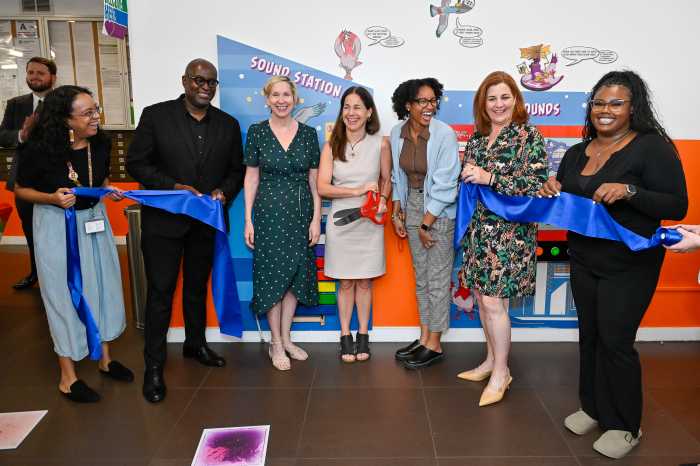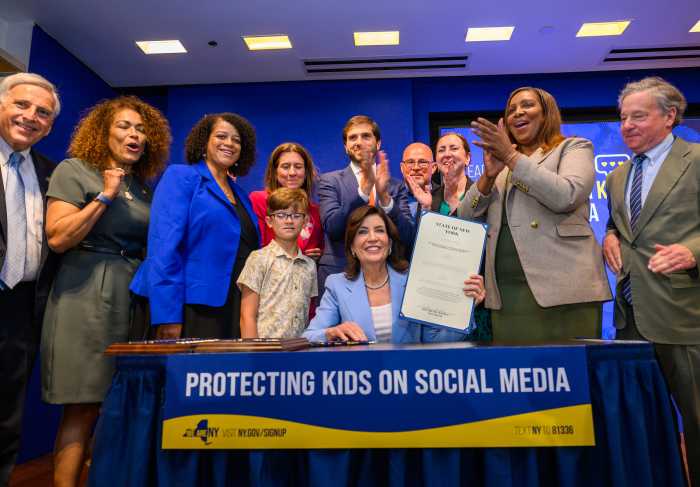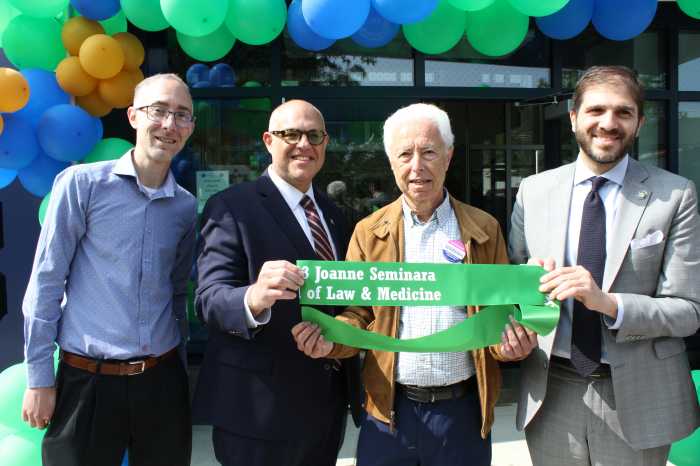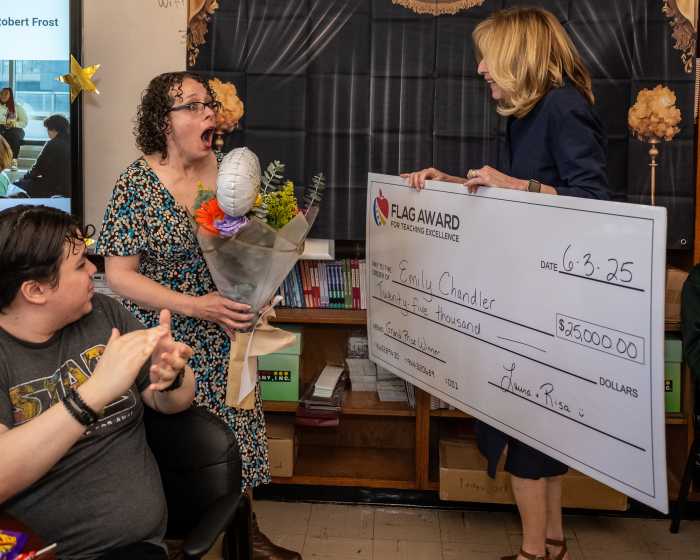“The system is flawed, not my children,” I think as I see numbers, a few below perfect, appear there in black ink on my brilliant boys’ report cards. Other thoughts: “What do I do now? I thought we were all doing our best? %$#@, &*%$, #@!%!”
Every time those brown envelopes come home, I try to remember that I don’t buy into systematic mechanisms for approval, that I am an iconoclast who doesn’t care what anyone else thinks about my kids. They are — objectively speaking, according to me and their father — totally kick-ass. Who cares what the mean outside world thinks?
But then those lower numbers jump out, scream from the page like a blaring siren, a screaming alarm: SOMETHING IS NOT PERFECT.
Big G chewed his fingers at the table the night before the parent-teacher meeting, after dinner, when the children were sent along so we could talk about them, about the reports about them. He remained calm in the face of my loud-whispered freak-out.
“It’s fine, it’s fine,” he said, scanning the problem areas. “Remember, this is supposed to just help us figure out where we need to help them…”
“YES, I KNOW!!” I scream-whispered, “THAT’S THE PROBLEM! I DON’T KNOW HOW, DO I? OTHERWISE WOULDN’T I BE DOING IT? ISN’T THAT WHY I STAY HOME? ISN’T THAT THE JOB I DON’T GET PAID FOR?!!”
The papers in those damn manila envelopes are my new work performance evaluations — and I have never been good at accepting anything less than a perfect evaluation. And now, of course, the stakes are far higher than how well I write articles for an advertising trade magazine. This is the future of my progeny.
Big G reminded me patiently, maybe for the millionth time: “This isn’t about you…”
I disagreed vehemently, in a hiss at myself and at him, at his great lack of understanding.
“What? This isn’t about me? Oh, yes, it is. If I were a better mother, then they would be…”
“They would be … what? They’re their own people, remember?”
It hit me, then. I actually thought about his words. Right. OH, right! They came out of me, but they began, after a time, to exist independently. They are more and more their own selves every day, distant and distinct from their Dear Old Mom.
There it is again, that faint, humming, trilling mantra: I’m losing them. Report cards are just one of so many arenas that remind me how they are separate beings, interested in certain things, not so much in others, and that there are things I can do to help, but — the big “but.” They are who they are.
I always try to calm myself before meeting with the boys’ teachers, to drop the defensive-mother guard and listen to what they have to say, to their view of how my boys comport themselves separate from me, to what they see as their strengths and weaknesses.
I try, then, to offer up the insights I have gleaned about my children in the home environment, things I think might help them help my boys. I keep my fingers crossed that, together, we can crack the case, keep the kids on the right track, moving forward, learning well. I keep my fingers crossed that I might improve, too, that I might be able to take my own ego out of the game and just concentrate on how I might assist my kids and encourage them in a loving, positive way to be their best.
Loving, positive, loving, positive. I try to remember this after the conferences but I am hard-pressed to figure how. It seems so much easier just to take them by their little shoulders and scream into their soft sweet faces: “DON’T YOU SEE HOW MUCH POTENTIAL YOU HAVE? YOU CAN DO THIS, YOU CAN DO ANYTHING! SO DO IT! DO IT, DO IT, DO IT!!”
I know I must offer positive encouragement at least some of the time because recently Eli parroted such encouragement back to me when my writing wasn’t going so well.
“You can do it, Mom, I know you can,” he said, sympathy in his eyes for my dejection. He placed a loving hand on my shoulder. “Remember? You’re a hard worker.”
Such is the lesson that is most important, so good to be reminded. All you can do is work hard, put in the effort to do your best. It’s a challenge when “best” is a relative term, when others do the judging, but that is always going to be true. My kids are always going to have to put themselves in a position to be assessed, so it’s good to get the practice early and often. The trick is not to take it too much to heart, to realize, as I myself try to do, that even if you’re not Nabokov, it doesn’t mean you’re nothing.
“As long as you’re doing your best, and you can feel good about it…” I say to my boys. After all, in my house, feeling good is the aim.
























